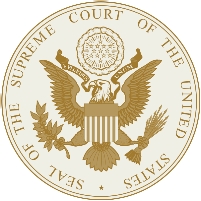Supreme Court Bans Life in Prison for Juvenile Non-Murderers
Wednesday, May 19, 2010

Continuing a recent trend of lessoning harsh sentences for juvenile offenders, the U.S. Supreme Court has ruled, in a 5-4 decision, that states cannot lock away for the rest of their lives young criminals who have not committed murder.
Justice Anthony Kennedy wrote for the majority in Graham v. Florida that sentencing non-homicide juveniles to life without parole is a “grossly disproportionate” punishment that violates the Constitution.
The ruling followed another key decision in 2005 when the Supreme Court said juvenile offenders cannot be executed.
The two decisions together mark quite a turnaround from the previous three decades, during which “American criminal justice policy was premised on a ‘get tough’ policy,” including the 1990s when many states moved toward trying children as adults, according to Marc Mauer, executive director of The Sentencing Project.
Some observers in favor of easing punishments for juveniles were not entirely happy with the Graham ruling. Tracey Meares, deputy dean and Walton Hale Hamilton Professor of Law at Yale Law School, was dissatisfied that the decision “did not impose a limitation on the number of years that a juvenile might serve for a non-homicide offense.”
The case arose after Terrance Graham, convicted of attempted robbery when he was 16, was convicted again while on probation, this time for a home invasion robbery he committed just before he turned 18. He was sentenced to life in prison. Florida eliminated parole for non-capital crimes in 1983. Graham appealed to the U.S. Supreme Court after Florida’s high court refused to hear the case and a state appellate court upheld his life sentence.
Chief Justice John Roberts concurred with the majority as the decision related to Graham, but argued that the sentence of life in prison without parole should be decided on a case-by-case basis.
In his dissent, Justice Clarence Thomas suggested that the Court should interpret the law “at the time of the Founding” when, theoretically, capital punishment could be imposed on a person as young as seven years old. Retiring Justice John Paul Stevens responded to Thomas by noting that, “While Justice Thomas would apparently not rule out a death sentence for a $50 theft by a 7-year-old, the Court wisely rejects his static approach to the law. Standards of decency have evolved….They will never stop doing so.”
-Noel Brinkerhoff, David Wallechinsky
Redefining Cruel Punishment for Juveniles (New York Times)
Supreme Court Bars Life Terms for Some Juveniles (by Annie Youderian, Courthouse News Service)
Graham v. Florida (Scotus Wiki)
Graham v. Florida Syllabus (U.S. Supreme Court) (pdf)
- Top Stories
- Unusual News
- Where is the Money Going?
- Controversies
- U.S. and the World
- Appointments and Resignations
- Latest News
- Can Biden Murder Trump and Get Away With it?
- Electoral Advice for the Democratic and Republican Parties
- U.S. Ambassador to Greece: Who is George Tsunis?
- Henry Kissinger: A Pre-Obituary
- U.S. Ambassador to Belize: Who is Michelle Kwan?






Comments